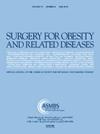代谢性减肥手术术前患者教育的实践:一项全国性调查的结果。
IF 3.8
3区 医学
Q1 SURGERY
引用次数: 0
摘要
背景:针对代谢和减肥手术患者教育(MBS-PE)实践的循证研究很少。目的:探讨术前MBS-PE在全国范围内的应用情况。设置:国家认证项目。方法:对2021年向美国代谢与减肥外科学会综合卫生专业人员和在职注册减肥护士分发的一项网络调查进行描述性分析。结果:样本(n = 269),代表43个州,分为两组:护士(65.8%)和其他综合卫生专业人员(OIHPs)(34.2%)。两组中都有超过74%的人认为15个教育内容领域“非常重要”或“极其重要”。根据临床经验(79.0%和75.0%)、文献信息(69.3%和75.3%)和理论信息(55.4%和76.1%),“大多数时间”或“总是”(由护士和OIHP)开发内容领域。通过印刷材料(95.2%)、网站/门户网站(69.5%)和社交媒体(53.2%)提供教育资料。分娩方式(护士和OIHP使用)包括说教式陈述(71.2%,77.2%)、行为矫正(60.5%,77.2%)和动机性访谈(47.5%,69.6%)。分娩设置“大部分时间”或“总是”由护士(76.3%)和OIHP(66.3%)单独进行。通过教育获得的MBS知识的有效性评价率为62.1%。非正式讨论、书面测试和质量度量主要用于确定知识差距。大多数人认为术前MBS-PE与手术结果中度或高度相关。结论:研究结果提供了综合卫生专业人员对术前MBS-PE实践的见解,为临床医生提供了反思的机会,纳入了推荐的实践变化,并利用内容、交付方法、知识测量和临床结果的教育结构研究了患者教育实践。本文章由计算机程序翻译,如有差异,请以英文原文为准。
The practice of preoperative patient education in metabolic bariatric surgery: results of a national survey
Background
Few evidence-based studies addressing metabolic and bariatric surgery patient education (MBS-PE) practices exist.
Objective
To examine how preoperative MBS-PE is provided nationally.
Setting
National Certification Program.
Methods
Descriptive analysis of an internet survey distributed in 2021 to integrated health professionals of American Society for Metabolic and Bariatric Surgery and active Certified Bariatric Nurses.
Results
The sample (n = 269), representing 43 states, was divided into 2 groups: nurses (65.8%) and other integrated health professionals (OIHPs) (34.2%). More than 74% in both groups rated 15 education content areas as “very important” or “extremely important.” Content areas were developed “most of time” or “always” (by nurses and OIHP) using clinical experience (79.0% and 75.0%), implementing information from literature (69.3% and 75.3%), and theory (55.4% and 76.1%). Educational materials were delivered through printed materials (95.2%), website/portal (69.5%), and social media (53.2%). Delivery methods (used by nurses and OIHP) included didactic presentation (71.2%, 77.2%), behavioral modification (60.5%, 77.2%), and motivational interviewing delivery (47.5%, 69.6%). Delivery settings were “most of the time” or “always” conducted individually by nurses (76.3%) and OIHP (66.3%). The effectiveness of MBS knowledge acquired through education was evaluated by 62.1%. Informal discussions, written tests, and quality metrics were used predominantly to identify knowledge gaps. A majority perceived preoperative MBS-PE to be moderately or highly related to surgical outcomes.
Conclusions
Results provide insights on preoperative MBS-PE practices from integrated health professionals, offering opportunities for clinicians to reflect on, incorporate recommended practice changes, and research patient education practices using educational constructs of content, delivery methods, knowledge measurement, and clinical outcomes.
求助全文
通过发布文献求助,成功后即可免费获取论文全文。
去求助
来源期刊
CiteScore
6.70
自引率
12.90%
发文量
570
审稿时长
56 days
期刊介绍:
Surgery for Obesity and Related Diseases (SOARD), The Official Journal of the American Society for Metabolic and Bariatric Surgery (ASMBS) and the Brazilian Society for Bariatric Surgery, is an international journal devoted to the publication of peer-reviewed manuscripts of the highest quality with objective data regarding techniques for the treatment of severe obesity. Articles document the effects of surgically induced weight loss on obesity physiological, psychiatric and social co-morbidities.

 求助内容:
求助内容: 应助结果提醒方式:
应助结果提醒方式:


